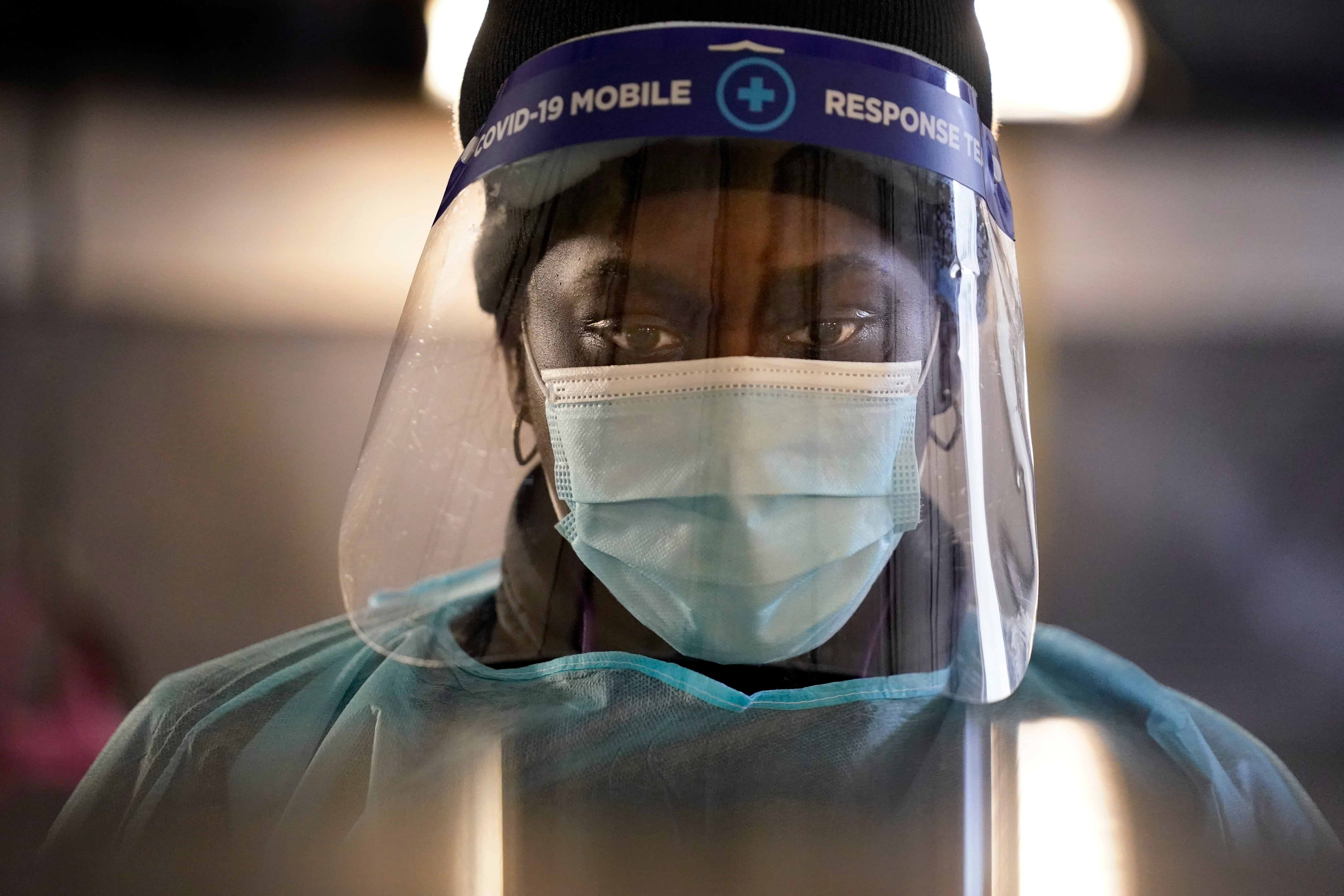Demoralized health workers struggle as virus numbers surge
Demoralized doctors and nurses across the U.S. are struggling to cope with record COVID-19 cases, prompting some governors to take new steps to contain the virus

Your support helps us to tell the story
From reproductive rights to climate change to Big Tech, The Independent is on the ground when the story is developing. Whether it's investigating the financials of Elon Musk's pro-Trump PAC or producing our latest documentary, 'The A Word', which shines a light on the American women fighting for reproductive rights, we know how important it is to parse out the facts from the messaging.
At such a critical moment in US history, we need reporters on the ground. Your donation allows us to keep sending journalists to speak to both sides of the story.
The Independent is trusted by Americans across the entire political spectrum. And unlike many other quality news outlets, we choose not to lock Americans out of our reporting and analysis with paywalls. We believe quality journalism should be available to everyone, paid for by those who can afford it.
Your support makes all the difference.Doctors and nurses around the U.S. are becoming exhausted and demoralized as they struggle to cope with a record-breaking surge of COVID-19 patients that is overwhelming hospitals and prompting governors to clamp back down to contain the virus.
New York Gov. Andrew Cuomo on Friday banned indoor dining in New York City, saying he had been waiting in vain for hospitalization rates to stabilize. Pennsylvania Gov. Tom Wolf did the same on Thursday and also suspended school sports and closed gyms, theaters and casinos.
A record of more than 107,000 people were in the hospital in the U.S. with COVID-19 as of Thursday, according to the COVID Tracking Project. More than 290,000 Americans have died of the virus.
Hospitals around the country have been overrun.
“We’re constantly looking for beds,” said Cassie Ban, an intensive care nurse at Indiana University Health.
Before the pandemic, an ICU nurse might handle two patients per shift. Ban said she now regularly cares for four or five. The national death toll doesn’t begin to capture what COVID-19 does to each critically ill patient or the medical teams who care for them, she said.
“I wish people could see what I do,” Ban said. “People are terrified and they’re alone. Each one of those numbers is the death of a person who wasn’t ready to go yet.”
Although concerns remain about getting enough beds, masks and other equipment, many frontline health workers are most worried about staff shortages.
Nurses are the most scare resource of all, said Kiersten Henry, an ICU nurse practitioner at MedStar Montgomery Medical Center in Olney, Maryland.
“I feel we’ve already run a marathon, and this is our second one. Even people who are upbeat are feeling run down at this point," Henry said.
Many expressed frustration over some Americans' disregard and even contempt for basic precautions against the virus.
Dr. Lew Kaplan, a critical care surgeon at the University of Pennsylvania’s Perelman School of Medicine, said health care workers are treated as “heroes” for helping patients but are seen as “close to evil incarnate” when they ask people to wear masks.
“It is very disheartening, while you are struggling to manage the influx of patients, there are others who won’t accept public health measures," said Kaplan, president of the Society of Critical Care Medicine.
Raju Mehta, a critical care physician at Advocate Health and Hospital in the Chicago area, said that early on in the pandemic, many frontline workers were energized by a sense of purpose. Now, that morale is beginning to crumble.
“Seeing what we’re seeing, day in, day out, for eight months, takes a toll,” Mehta said. “It’s tough knowing what we see, and then what happens outside our walls.”